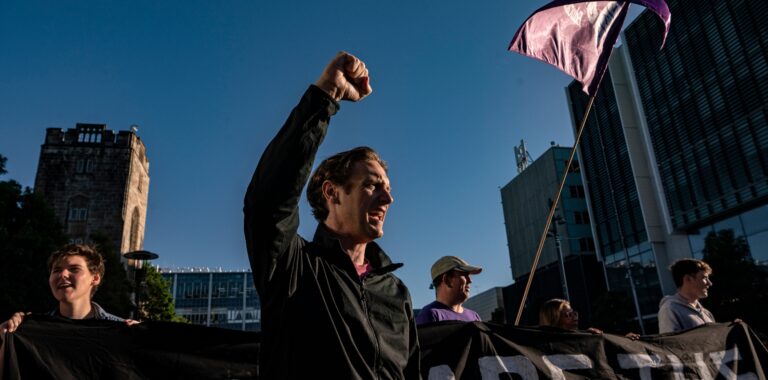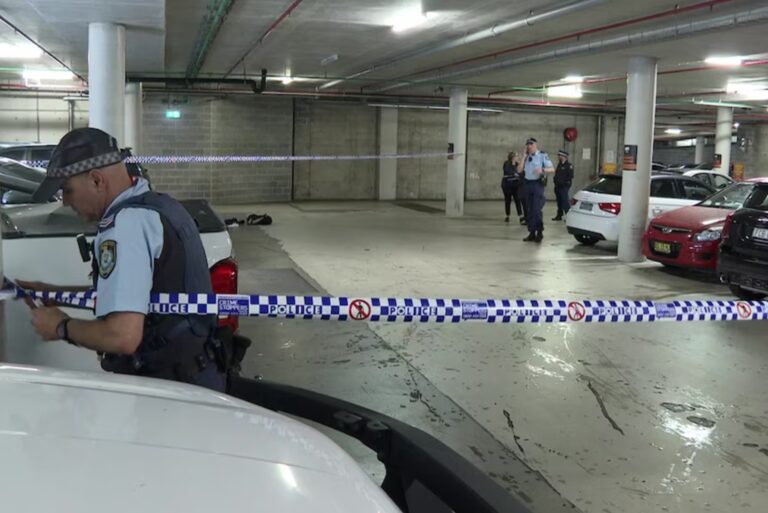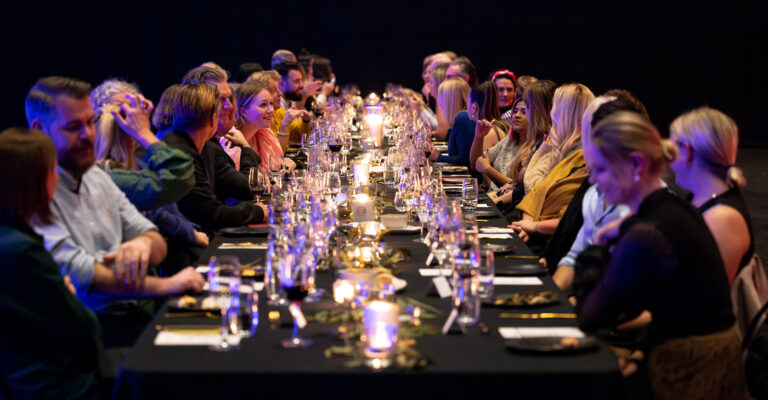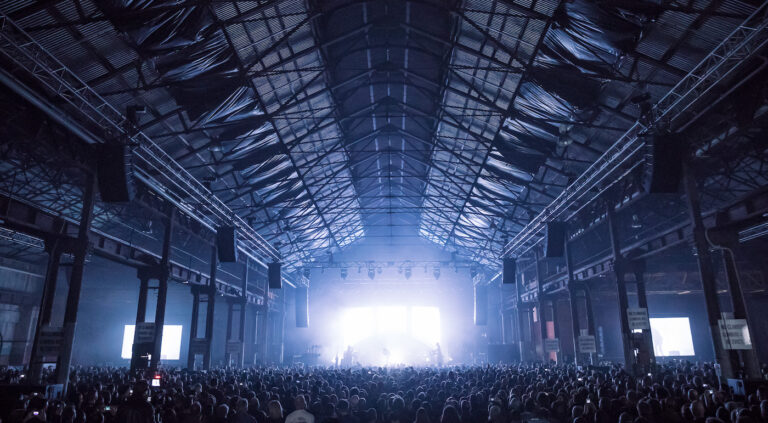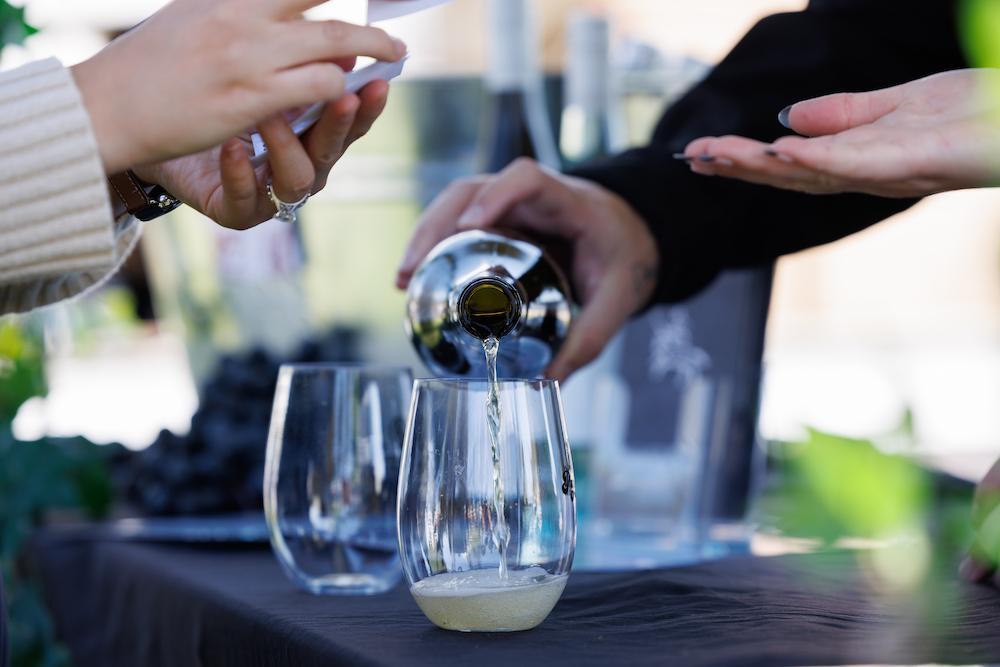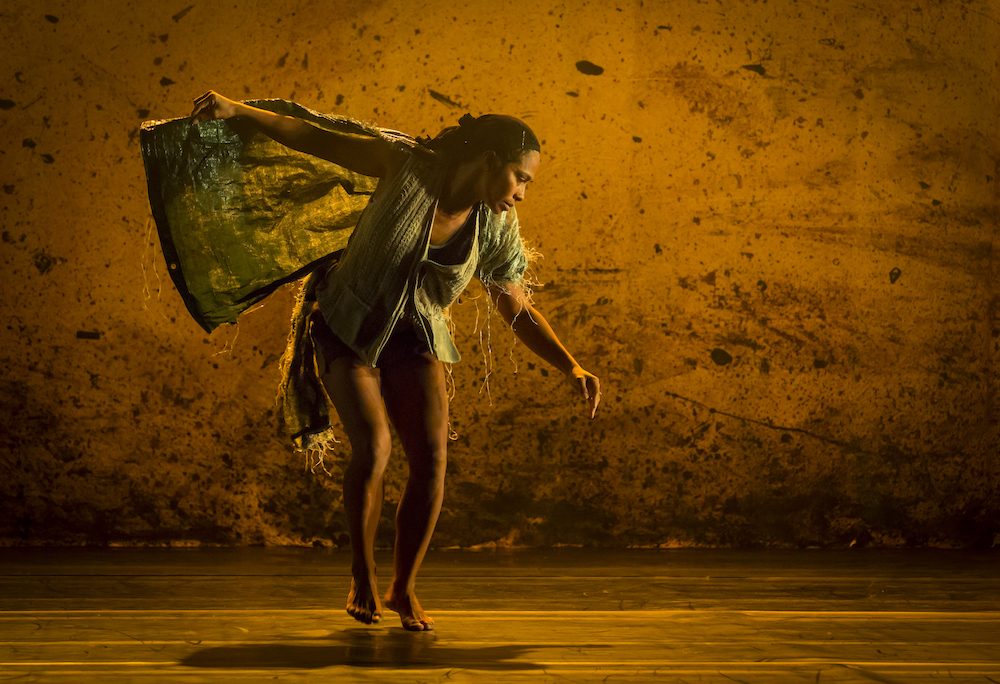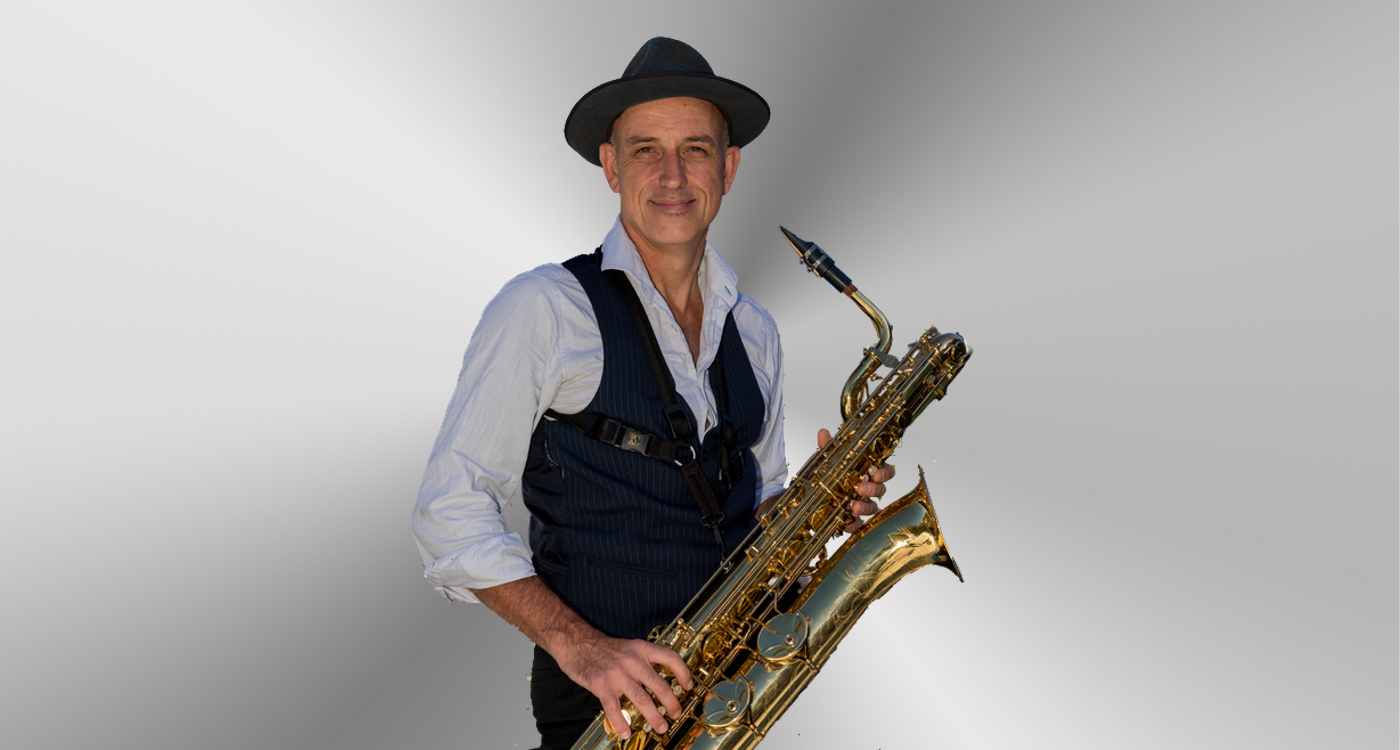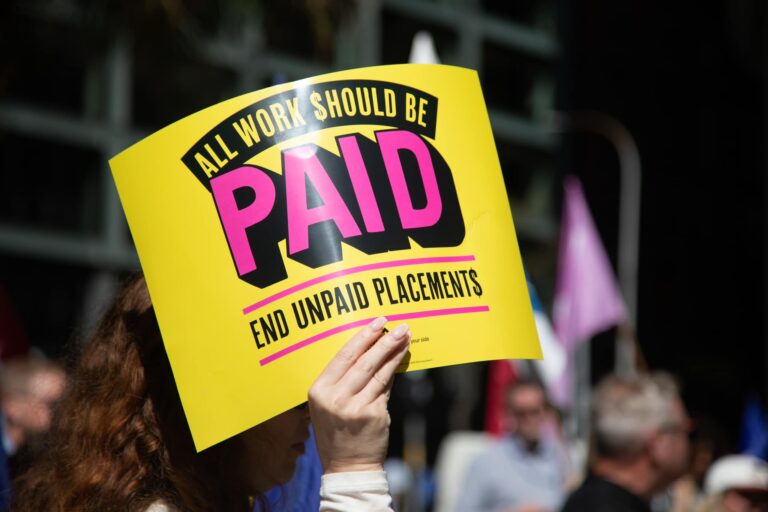
EDITORIAL: Free speech, the arts, and solidarity with Palestine
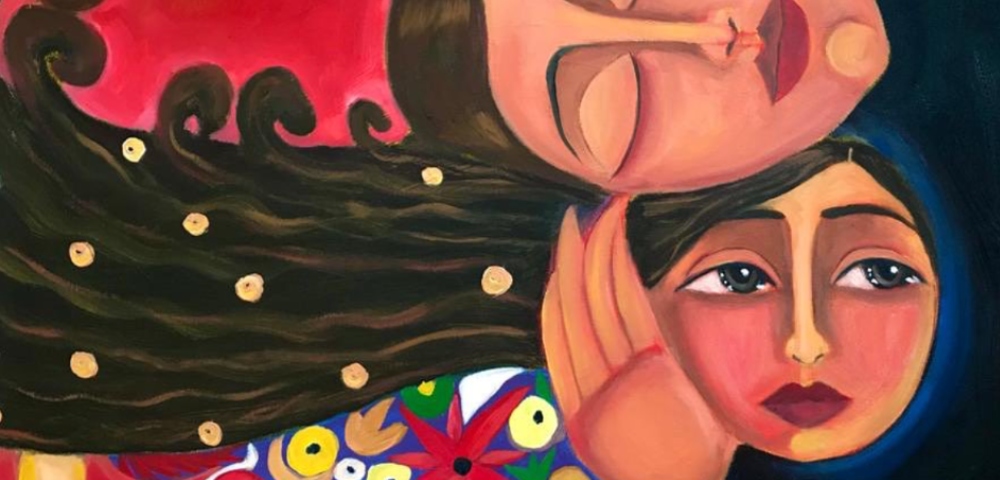
In a time of deep political divide, the right to free speech remains paramount. Communities have stood up in support of Palestine, and artists have used different media to express solidarity.
Hundreds of rallies have taken place across Australia in response to the worsening situation in Gaza. Since the initial Hamas attack on Israel on October 7, killing 1200 people at a music festival, the relentless retaliatory attacks on civilians in Gaza have had devastating effects. Civilians are dying each day, with the death toll now reaching 18,000, according to Gazan health authorities.
In recent weeks, we’ve seen draconian responses to peaceful protests across Sydney. NSW Police were heavily criticised for their “scare tactics” in the days leading up to a pro-Palestine rally, launching ‘Operation Shelter’ and considering using “extraordinary” powers to search and identify those participating in the protest.
Activist from Palestine Action Group Dalia Al-Haj Qasem told City Hub, “We have seen an outrageous infringement on the right to free speech. We affirm our right to gather and protest in defense of Palestine. This is as an inalienable moral right as much as it is a legal and democratic one.”
But to be anti-Zionist is not to be anti-Semitic, just as protesting the indiscriminate killing of thousands of Palestinian civilians is not justifying the violent agenda of Hamas. A democratic society should allow for conflicting political arguments to take place without suppressing one side or the other.
Calls for the Australia government to urge for a humanitarian ceasefire have increased but went unanswered. Only on the morning of Wednesday 13 December was it that Australia joined 152 other countries in the UN General Assembly in voting for a ceasefire, breaking with the US and the UK. In late October, Australia abstained from a vote because the resolution did not recognise Hamas’ responsibility for the October 7 attack.
While members of the community rally weekly for Palestine, councils across the city have taken their own stands, but to differing outcomes.
In October, Councillor Ludovico Fabiano from Waverley Council got sacked from his position as Deputy Mayor for wanting to acknowledge Palestinian deaths. Fellow Greens Councillor Dominic Wy Kanak was also removed from several committees for supporting Cr Fabiano. With five Liberal councillors, two Greens, four Labor councillors, including Mayor Paula Masselos, and one Independent, this anti-democratic decision could have next election’s mayor drawn out of a hat.
Randwick City Council passed a motion not to fly the Palestinian flag on November 29, the International Day of Solidarity with the Palestinian People. Addressing council at that meeting, Dr Max Parasol, a lawyer and research fellow, said, “In the absence of an Israeli flag next to it, you might as well fly a Hamas flag, legitimising the offence of October 7. If you truly care about peace, you cannot fly a Palestinian flag on its own.”
Most recently, on Monday 11 December, City of Sydney approved a motion to call for a ceasefire. But, to the outrage of many in the community, Inner West Labor unanimously voted down a similar motion at a council meeting on Tuesday 22 November. Labor councillors claimed that foreign affairs is the responsibility of the Commonwealth, not of local government.
A motion from a Sydney council won’t stop the war in the Middle East. Nor will it stop conflict in our own city, as incidents of anti-Semitism and Islamophobia continue to occur. But it does start to raise the question of where, when, how, and by whom social and political issues can, or should, be debated.
In the arts sphere, a recent furore broke out after three actors from the Sydney Theatre Company, including Harry Greenwood, Hollywood star Hugo Weaving’s son, donned traditional Palestinian scarves known as keffiyehs during a curtain call.
The move sparked a frenzy of condemnation from members of the Jewish community, resignations from the STC board, and withdrawal of donor support. The theatre company hastily apologised for “any distress caused” to the audience but soon after released an official statement, saying “We understand the actions at the curtain call and our immediate response has hurt many in our community. For this, we are deeply sorry.”
“We support individual freedom of expression but believe that the right to free speech does not supersede our responsibility to create safe workplaces and theatres,” the statement continues.
Some of the outrage in reaction to the actors’ political statement could be summarised as such: Keep politics out of art. Art is for entertainment. Artists have no right to comment on social or political matters.
Talking about this event in an ABC interview, Louise Adler, an Australian publisher of Jewish heritage, said “Actors, artists and writers have always had political views. The history is long of artists being part of the world that they live in, and bringing that world into the work they make.”
“There is a long and honourable and important tradition of artists being engaged in the world they inhabit.”
Even the theatre’s statement acknowledged that artists do not exist nor work in a void, saying “Theatre is a place for exploring ideas with complexity and context. We recognise that artists bring their whole selves to our stages and in doing so, they bring a rich diversity of views and lived experience.”
Art, in all its forms, is a representation of the human experience in all its forms. You can’t dictate rules and set limitations for art because art is, by definition, freedom of expression.
Whether it’s painted on a canvas or on a street, art has been used throughout history to spread awareness, incite action, rebel, force change, as much as it is there to reinforce, comfort, amuse, unite.
Art can be the springboard of political discussion, and political dissent often takes place through art. In our own city, one of the most beloved centres of arts and culture has also been the site of political expression.
In 2003, as Australia was on the brink of going to war in Iraq as part of a US-led coalition, anti-war activists scaled the Sydney Opera House with a paint roller and a tin of red paint. Wearing Dunlop Volleys, activists Dave Burgess and Will Saunders painted ‘No War’ in block letters on the iconic sails.
20 years later, the sails of the Opera House lit up with the colours of the Israeli flag. Earlier in the year, the Ukrainian flag colours illuminated the sails.
But there’s been a perceptible difference in responses to symbols of Palestine. A keffiyeh at a curtain call is threatening; demonstrators at Port Botany protesting the arrival of Israeli cargo ships warrant force by the police. And despite ever-increasing cries from the Australian public for the government and corporate organisations to demonstrate humanitarian support for Palestine, and acknowledge the atrocities being perpetrated by Israel daily, the government responded only with a chilling silence.
There is, however, a comfort in seeing the solidarity not only across this country, but in many others. The worsening situation in Gaza speaks to many, it seems. Ireland, for instance, has shown particularly strong support for Palestine, perhaps remembering through Gaza their own history of oppression under British rule.
What’s happening now can evoke for people from war-torn backgrounds their own traumatic memories.
Dr Susan Rees, a professor in the School of Clinical Medicine, UNSW Medicine & Health, and researcher and trauma expert in psychiatry, spoke to City Hub about the impact of the current conflict on those in Australia.
“People who arrived as refugees, or have come to Australia from a conflict or trauma background, are having a re-emergence of traumatic memories and/or feelings of mental distress,” she said.
“This includes, for example, Vietnamese, Sudanese, Tamil Sri Lankan, Iraqi, people from Myanmar, Afghanistan, and Syria, as well as people who lived through the Holocaust or are their family members impacted by intergenerational trauma.”
After the mass resignation of the Multicultural Advisory Committee following Inner West Labor’s decision, City Hub sat down with its members. Wael Sabri, a member of Palestinian background, said, “As I often say to my colleagues and my friends, Palestine is not just for the Palestinians. It’s a lot more because it triggers lots of issues.”
“Palestine speaks to many countries and many issues – poverty, humanitarian issues, politics, oppression, racism.”
“Palestine is a whole representation of that, for many people, everywhere.”
